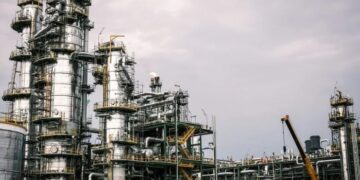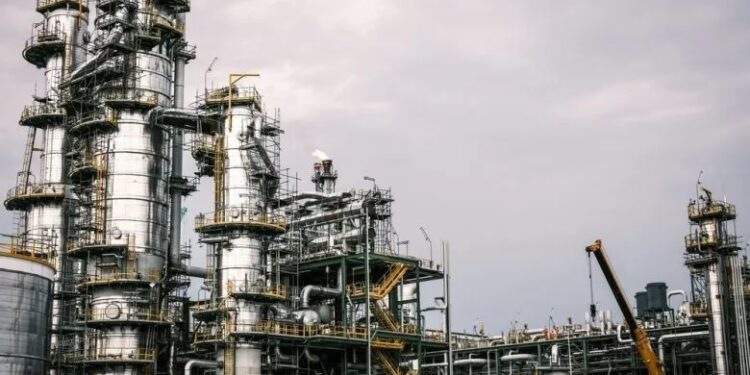Dangote Refinery is preparing for the arrival of its inaugural crude batch in June 2023, according to a report from S&P Global Commodity Insights released on May 16.
A refinery representative disclosed that they anticipate commencing processing of this initial batch, which will consist of 500,000 barrels per day (b/d), with plans to gradually increase production to 650,000 b/d by mid-2024.
President Muhammadu Buhari is scheduled to officially commission the Dangote refinery on May 22.
The report highlights that a significant portion of the refinery’s crude oil will be sourced from Nigeria, a country with a production capacity of 2.5 million b/d.
However, Nigeria has encountered various challenges, including insecurity, theft, strikes, and operational issues linked to ageing wells, preventing it from surpassing a daily output of 1.2 million b/d.
According to data from S&P Global Commodity Insights, the Dangote refinery aims to produce Euro 5 compliant gasoline, diesel, and polypropylene.
The report projects that motor gasoline production will rise from its current negligible level to reach 249,000 b/d by 2026 and exceed 300,000 b/d by 2033.
Also, petrol imports are expected to decrease by more than half, reaching 154,000 b/d by 2026.
Furthermore, with Nigeria’s projected rapid population growth in the coming decades, the data suggests that imports will once again surpass domestic production by 2042.
Notably, starting from the following year, Nigeria will begin exporting gasoil for the first time, with production estimated to increase from 3,500 b/d in 2023 to 211,000 b/d in 2027.
According to S&P analysts, Nigeria’s crude production is forecasted to remain stable at approximately 1.3 million b/d over the next ten years.
However, the establishment of the Dangote refinery is expected to significantly impact oil exports.
The forecast indicates that in 2023, Nigeria is projected to produce 1.46 million b/d and export 1.45 million b/d.
However, by 2027, despite a slight decline in production to 1.30 million b/d, oil exports are forecasted to drop to 656,000 b/d, influenced by the operational capacity of the Dangote refinery.




































